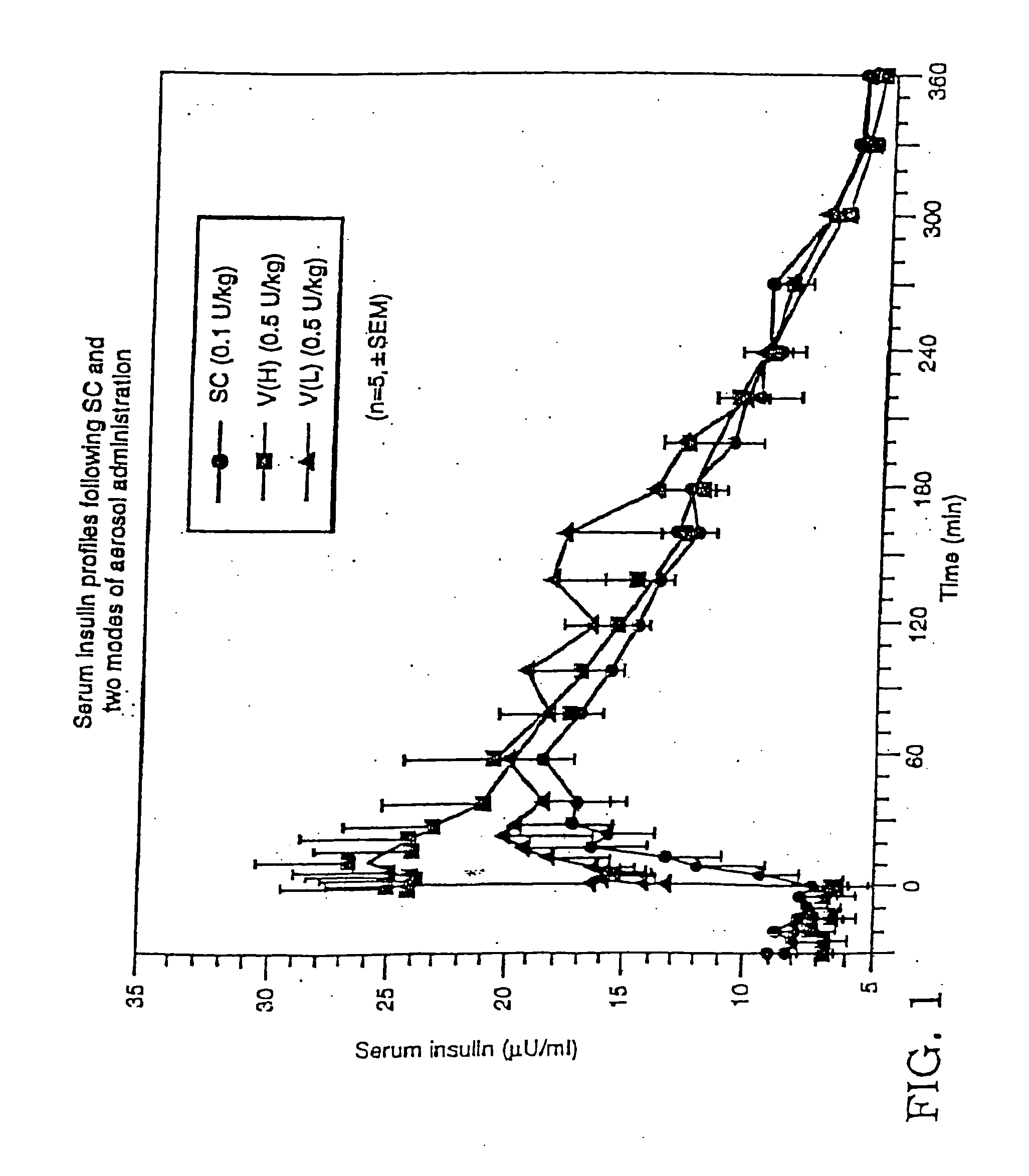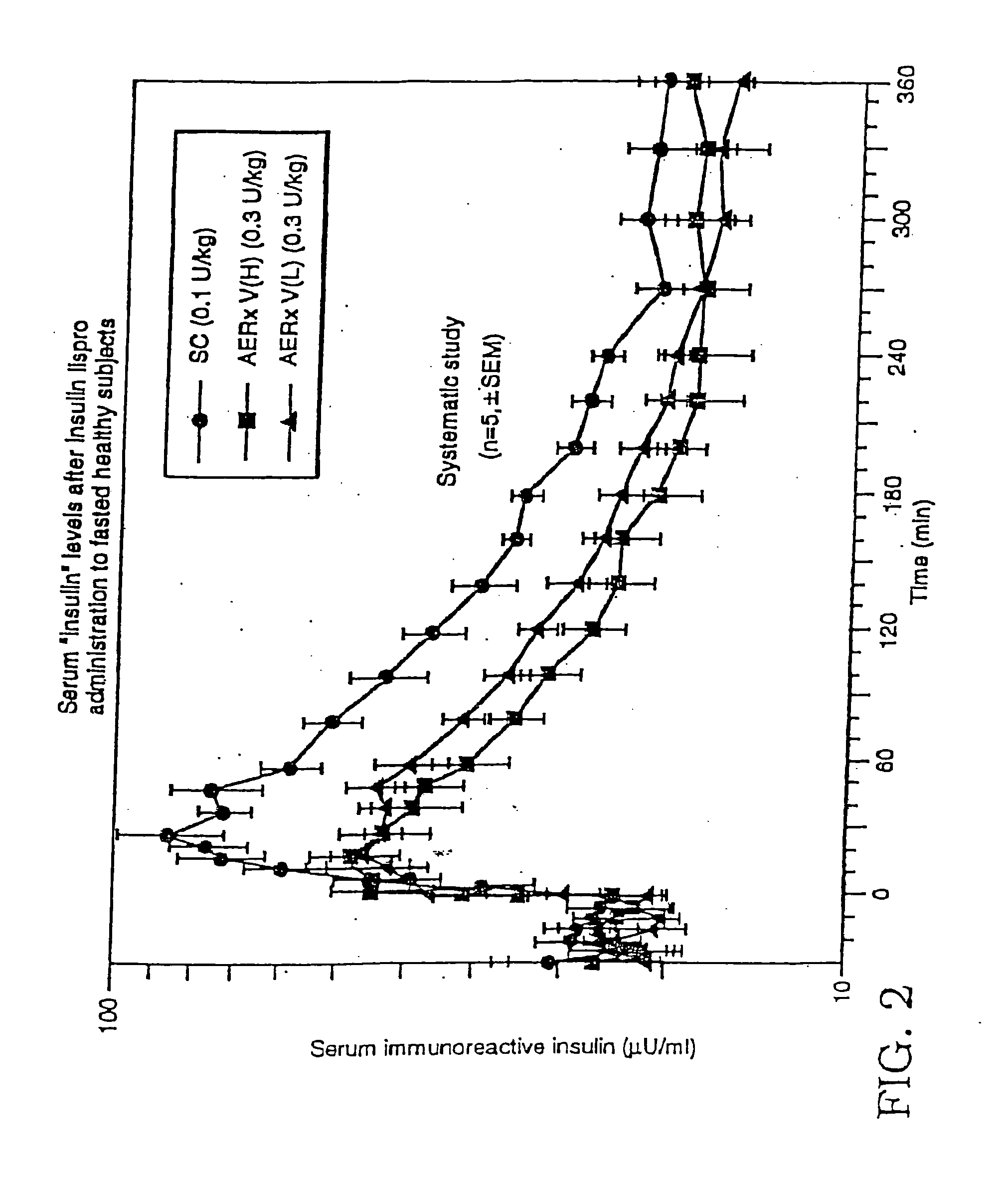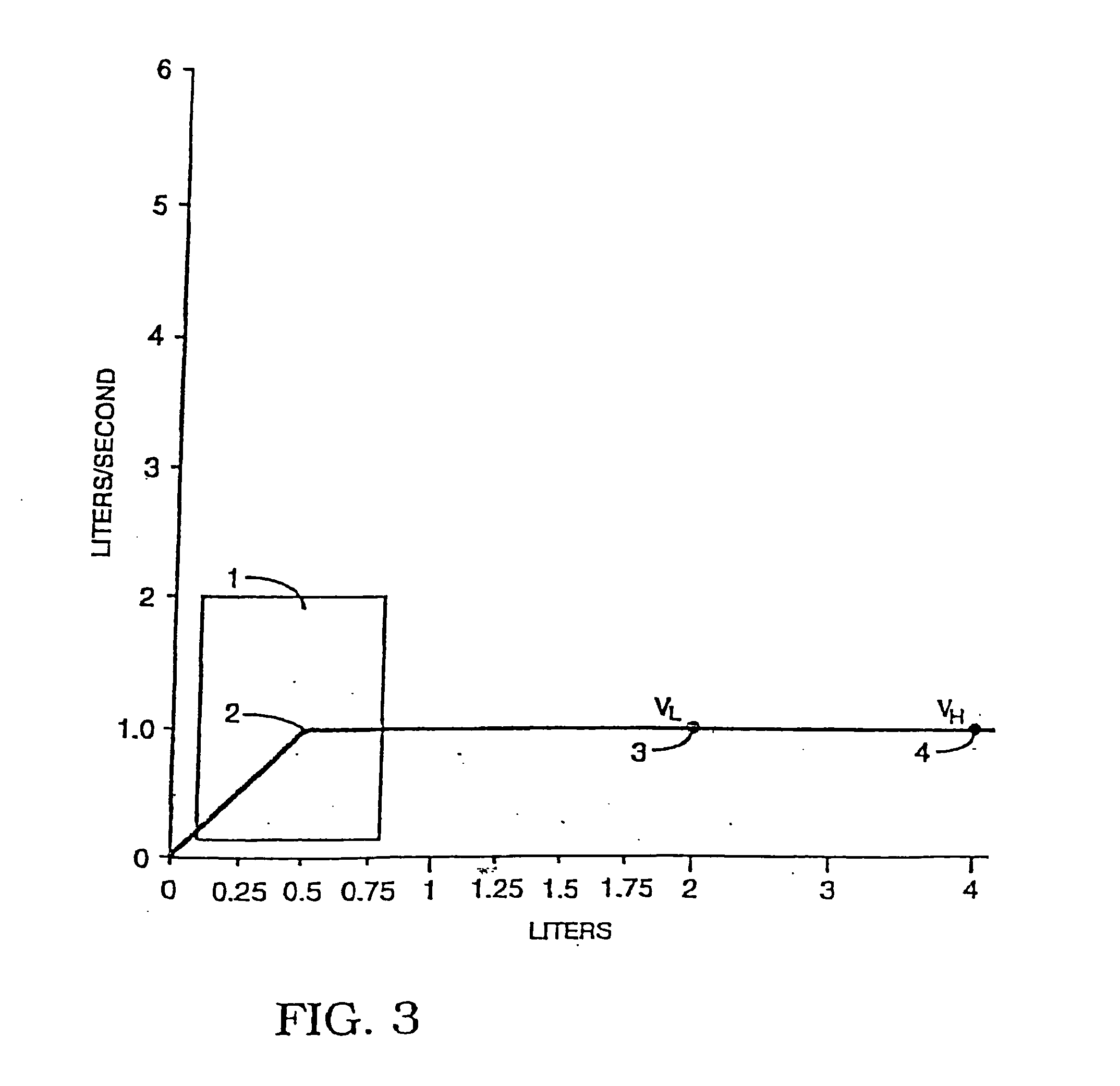Method of use of monomeric insulin as a means for improving the reproducibility of inhaled insulin
a monomeric insulin and reproducibility technology, applied in the direction of peptide/protein ingredients, extracellular fluid disorder, metabolic disorders, etc., can solve the problem that the inhaled volume at the delivery does substantially affect the blood concentration versus time profile of regular insulin, and achieves less affected, less affected, and tight control over the serum glucose level
- Summary
- Abstract
- Description
- Claims
- Application Information
AI Technical Summary
Benefits of technology
Problems solved by technology
Method used
Image
Examples
example 1
Administration of Regular Recombinant Human Insulin
[0144] A study was performed to determine the influence of different inhalation maneuvers: deep (VH) and shallower (VL) inhalation. Deep inhalations required the patients to inhale as much as possible (e.g., 4-5 liters) and shallow inhalation were about half that (e.g. 2-2.5 liters) following the administration of aerosolized drug). The study was performed using five healthy, fasting male subjects. To each of the subjects, 250 U / ml of a 7.4 pH human zinc insulin formulation was administered using three methods: subcutaneous administration, deep inhalation administration, or shallow inhalation administration.
[0145] The study was performed using five healthy, fasting male subjects. 250 U / ml of a 3.5 pH human insulin formulation was administered to each of the subjects using three methods: subcutaneous administration, VH inhalation administration and VL administration. Subcutaneous administration of the insulin consisted of an inject...
example 2
Determination of Efficacy of Administration of Aerosolized Human Insulin Lispro
Modes of administration
[0151] Pharmacokinetic parameters associated with the two modes of insulin administration, inhalation of aerosolized insulin lispro and subcutaneous injection of insulin lispro, were determined to compare the efficacy (bioeffectiveness in reducing glucose levels) and speed of each. The study was performed using nine healthy, fasted male subjects.
[0152] Aerosol administration to each subject was performed using the AERx™ device. Administration was done using both deep (VH) and shallower (VL) inhaled administration—in 5 out of 9 subjects. Subcutaneous administration of the insulin lispro consisted of an injection of a predetermined dosage into the subcutaneous region of the abdominal area. Serial serum blood samples were taken from each subject for the analysis of plasma glucose and serum insulin.
[0153] The pharmacokinetic parameters Cmax and Tmax were determined for each subject....
PUM
| Property | Measurement | Unit |
|---|---|---|
| diameter | aaaaa | aaaaa |
| diameter | aaaaa | aaaaa |
| volume | aaaaa | aaaaa |
Abstract
Description
Claims
Application Information
 Login to View More
Login to View More - R&D
- Intellectual Property
- Life Sciences
- Materials
- Tech Scout
- Unparalleled Data Quality
- Higher Quality Content
- 60% Fewer Hallucinations
Browse by: Latest US Patents, China's latest patents, Technical Efficacy Thesaurus, Application Domain, Technology Topic, Popular Technical Reports.
© 2025 PatSnap. All rights reserved.Legal|Privacy policy|Modern Slavery Act Transparency Statement|Sitemap|About US| Contact US: help@patsnap.com



